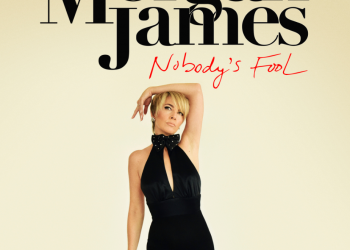While Eric Benet’s album “The One” is a certified fan favorite, there are some who are finding fault with a certain song on the compilation called “Redbone Girl” featuring Lil Wayne. The song plays on the term to describe light-skinned women, and some think the song promotes a racist standard of beauty.
Addressing the controversy, Benet told CBS Local, “I did a song called “Chocolate Legs’ about my experience with a dark skin lady. There was no anger or uproar of ‘How dare you.’ So “Redbone Gir” is one song about one experience about a girl who happens to be light complected but there was quite an uproar.” In his defense, the first thing said in the song is “I love all women.”
But some people and bloggers alike aren’t trying to hear it. Blogger for Colorlines.com Akiba Solomon weighs in, “I’m not a big fan of songs that fetishize dark skin either. But you could argue that [the ‘dark-skin’ devoted songs] offer some sort of resistance to the prevailing beauty standards. He’s attempting to be provocative. He’s pretending that he’s never heard about light skin preferences. Let’s not pretend that it doesn’t exist,” she stated.
Benet says it’s artistic expression in songwriting. “It’s just the songwriter talking about one experience. When people look into it much deeper than that, it’s on them,” he said.
For Benet, though, the fact that people are talking about such a heated issue is fine, for we need to address these issues in order to get to the bottom of the issue.
“Now it makes me, on my next record, want to talk about an experience with an Asian girl. What I was trying to do as a songwriter is talk about the beauty of all. One at a time,” he stated. The fact that it’s so sensitive, we need to talk about it.”
In other news, look out for the video for “Harriett Jones,” the next single from “The One,” which Benet recently wrapped on filming.
It’s no secret that the music industry is heavily scrutinized. And now, Grammy-nominated singer Eric Benet finds himself in hot water over his latest single “Redbone Girl”. The song has sparked a debate among listeners and critics alike – some praising it for its raw emotion while others denouncing it as inappropriate cultural appropriation. So what exactly happened to cause such an uproar? Let’s take a closer look at this controversy!
The lyrics of “Redbone Girl” have been called into question by many who feel they are offensive towards African American women. In particular, the line “you ain’t even gotta try” has been cited as being demeaning because it implies that Black women don’t need to make any effort to be attractive or desirable. Additionally, Eric Benet has come under fire for not consulting with any African Americans prior to releasing the song.
As news of this growing backlash spreads, fans and fellow artists alike are weighing in on the topic. Some believe that Eric Benet should apologize for his insensitivity while others argue that he was simply trying to pay homage to black culture with his song. Regardless of one’s opinion, there’s no denying that this issue has brought up important conversations about representation and respect within music today.
Controversy Surrounding The Song
Eric Benet recently released the song “Redbone Girl”, which has been met with a lot of criticism. The lyrics have been accused of fetishizing and objectifying Black women, leading to an outcry from fans and critics alike.
The main issue is that some feel the song glorifies light-skinned beauty while simultaneously demeaning dark skinned African American women. This perpetuates colorism within the Black community by reinforcing long held stereotypes about lighter skin being seen as more attractive than darker skin tones. In addition, many felt that it was insensitive for Eric Benet – a man not belonging to this particular demographic – to sing about these issues without considering how his words might be interpreted or received in today’s society.
The criticisms lodged against the artist have resulted in him apologizing publicly for any offense caused by his music and vowing to do better moving forward. It remains to be seen whether further action will come of this incident, but it serves as a reminder of the importance of taking into account other people’s perspectives when creating art.
Reactions To The Music Video
The music video for “Redbone Girl” also sparked controversy, with many people criticizing the way that Black women were portrayed in it. While some found the visuals to be inspiring and empowering, others felt they perpetuated negative stereotypes about African American women.
One of the most common criticisms was that the video focused too much on light-skinned models while dark skinned women were largely absent or shown only briefly. This further contributed to the idea that lighter complexions are more desirable than darker ones, which is damaging to young girls growing up who already face a lot of pressure based on their appearance.
The response to Eric Benet’s song has been an important reminder that we should all think carefully about how our words and actions can affect those around us. It’s vital that artists strive to create art that uplifts rather than reinforces outdated ideals and prejudices – something everyone can benefit from.
Conclusion
The controversy surrounding Eric Benet’s “Redbone Girl” song has been a hot topic of discussion. Although many people have praised the song for its positive message, there has also been an outcry from some who find it offensive and degrading to women. It appears that the singer may not have fully understood or considered how his words would be interpreted by certain listeners.
In my opinion, I believe Eric Benet should apologize for any offense caused by the lyrics in his song. As an artist, he should make sure that his work does not hurt anyone’s feelings or demean them in any way. Ultimately, this is a reminder to us all to think twice about our words and their potential impact before we speak them out loud or release them into the world.
When music is used as a platform for expression, it can be powerful and uplifting – but it can also cause harm if used carelessly. We must remember to consider everyone’s perspective when creating art and always strive to treat each other with respect at all times.








